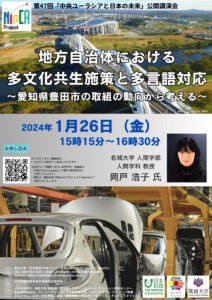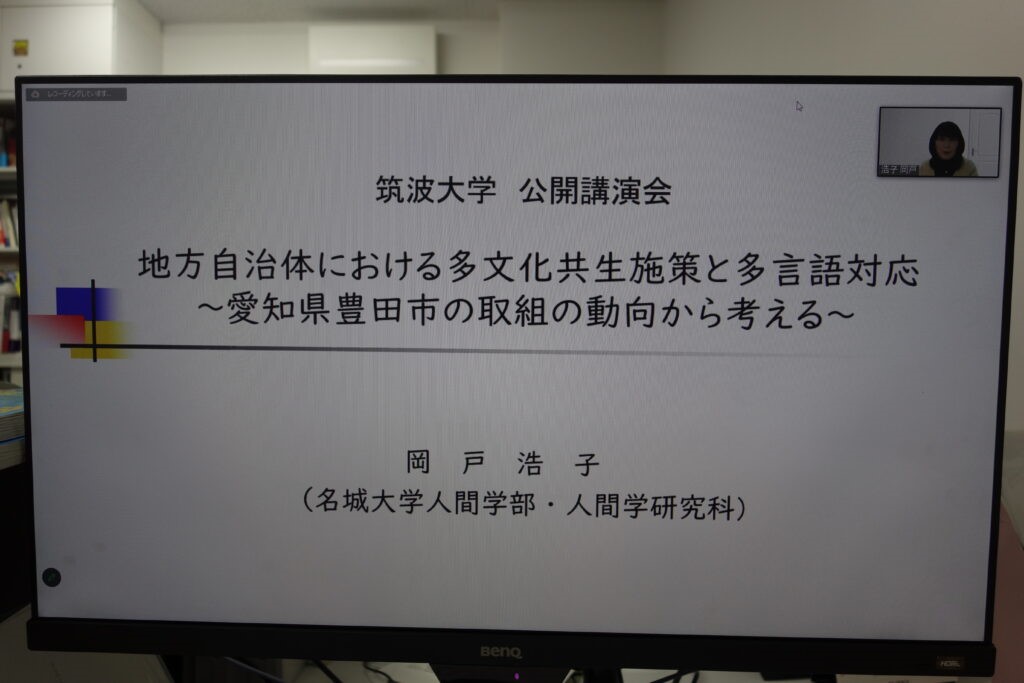The 47th Public Lecture Series “The Future of Central Eurasia and Japan” was held on Friday, January 26, 2024. This time, we invited Professor Okado Hiroko of the Department of Human Studies, Faculty of Human Studies, Meijo University, to give a lecture titled “Multicultural coexistence policies and multilingual support in local governments – considering the trends in initiatives in Toyota City, Aichi Prefecture.”
Professor Okado Hiroko, who received her doctorate from the Graduate School of International Development at Nagoya University, has conducted research on foreign language education other than English in New Zealand, as well as multilingualism and identity in international marriages in Japanese society. She is currently conducting research into multilingual support in local governments from the perspective of multicultural coexistence in Japanese society. In this lecture, she talked about the state of multiculturalization and multilingualism, focusing on Japan, Aichi Prefecture, and Toyota City.
Currently, there are about 3.07 million foreign residents living in Japan, followed by China, Vietnam, South Korea, the Philippines, and Brazil. On the other hand, in Aichi Prefecture, which has the second largest number of foreign residents in Japan after Tokyo, 3.97% of the prefecture’s total population is foreign residents, with Brazilians accounting for the largest percentage.
 Toyota City, which promotes multilingual support, has opened a multilingual service desk for citizen consultations, with interpreters at the desk providing English, Portuguese, and Spanish, and a remote video interpretation service available for other languages. In the emergency services, she introduced the use of services such as the communication support board, “Three-way simultaneous interpretation” that responds to 119 calls in 21 languages via the telephone interpretation center, and “Emergency VoiceTra,” a voice translation app that supports 31 languages.
Toyota City, which promotes multilingual support, has opened a multilingual service desk for citizen consultations, with interpreters at the desk providing English, Portuguese, and Spanish, and a remote video interpretation service available for other languages. In the emergency services, she introduced the use of services such as the communication support board, “Three-way simultaneous interpretation” that responds to 119 calls in 21 languages via the telephone interpretation center, and “Emergency VoiceTra,” a voice translation app that supports 31 languages.
During the question and answer session, questions were asked about the process that had led to the enhancement of policies in Toyota City, as well as the progress of discussions on support for maintaining one’s mother tongue and the right to receive educational and social welfare services in one’s mother tongue. In addition, experts from foreign countries strongly pointed out the need to actively send out the message that it is necessary to learn Japanese if you want to settle in Japan, and the meeting was a success.




